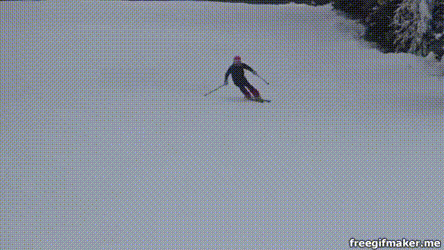The alpine skiing technical evaluation
Pub
Share
The generic/effective alpine skiing technical evaluation++ is an attempt to look at analyzing a skier's movements in a generic manner. It follows along the planes of movement, looking at the following elements.
The values
The evaluation of each skill is in the IACR system:
- Initiation - the skier understands what needs to be done
- Acquisition - the skier can execute sometimes
- Consolidation - the skier can execute often, in diverse conditions
- Refinement - the skier owns the skill
The Elements
These are the evaluation elements. After a generic "form" evaluation through "stance and mobility", they follow along the planes of movement:
- lateral
- fore/aft
- up/down
- rotational
At the end there is the one thing the skier should focus on working next.
Stance and mobility
This describes how well the skier can maintain a functional stance and stays in balance while skiing. The stance should be as narrow/wide as needed. The skier should use all joints and show mobility.
Tipping
How effective is the skier at edging the skis and is this edging a result of lower body movements, using ankles and feet, via inversion and eversion.
See Tipping.
Angulation
How well does the skier complement the edging with angulation, throughout the turn. Is the angulation/separation at the hips or using the spine?
See Counterbalancing.
Coiling
How well the skier is counteracting the turning forces throughout the turn. This gives the appearance of the upper body being stable, in the rotational plane.
See Counteraction and Coiling.
Fore-aft
Does the skier manage the fore/aft properly throughout the turn? Is the turn started forward? Is there a recentering in transition? Is the skier too forward at the completion of the turn? Can the skier manage the fore/aft throughout the turn as needed (maintain shuffle in check etc).
See Fore-aft.
Flexing and extending
Does the skier manage the COM/BOS relationship properly in the vertical plane? Is there a well-timed flexion at the end of the turn, to maintain contact with the snow and manage forces? Does the skier extend laterally into the new turn as opposed to up? Is the flexing/extending individual (for big angles when needed)?
See Flexing.
Carving the outside ski
As a result of the overall movements in the 3 planes, is the skier effective at carving the skis? Is there more pressure on the outside ski?
See Carving.
Steering
Is the skier using a good mix of steering/edging throughout the turns? Is the steering smooth and well timed?
See Steering.
Pole plant
Does the skier have an effective pole plant? One that is well timed and does not influence the upper body negatively?
See Pole plant.
RTE
Release - Transfer - Engage: are these effective? Can the skier do them in any order?
See Release transfer engage and:
Speed Control
Can the skier effectively control the speed while carving?
See Speed control and:
Focus on
As a result, what should the skier focus on next? In what direction can he/she find the biggest improvement?
You need to log in to post a comment!
